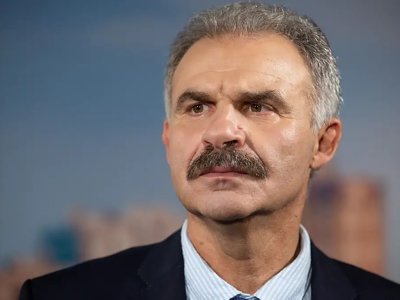Growing number of Russians want war to end, surveys show. Will Putin heed?

In the absence of independent media and free elections, Putin’s regime relies on public opinion surveys, usually closed ones, to measure the Russian public mood. And it usually takes note of the results.
The surveys held in 2023 showed a growing demand for an end to the war in Ukraine. The Kremlin will have to adjust its policies somehow in response to that, especially if the dynamic persists.
Ukrainians’ desire for peace is equally important, but that’s a separate topic.
Before the beginning of the war, public opinion surveys by the Levada Centre showed that the number of Russians believing that war was possible with Ukraine was growing.
The main reason – the Kremlin managed to convince them it would be a fair war.
When the war started, a majority of Russians put the blame on the USA (59.7 percent, according to a poll by the research group Russian Field).
According to a telephone survey conducted in November 2023 by the National Opinion Research Centre of the University of Chicago, 64 percent of Russians saw the war as a civilisational conflict between Russia and the West.
The surveys conducted by the Levada Centre and Russian Field also show that more than a half of Russians see the military operations as successful – the figure is about 70 percent among those who use television as the main source of information.
Totalitarian propaganda is not about winning audiences by giving them convincing arguments or truthful information, but through maintaining a massive and constant stream of disinformation.
The Russian propaganda machine has been doing just that – subjecting Russians to a relentless stream of propaganda.
Meanwhile, the anti-Putin, anti-war opposition has not been able to come up with any kind of efficient information strategy to counter that.
Nonetheless, the surveys conducted in 2023 showed that the number of Russians wanting the war to end was going up.
According to Chronicles, a research project by Russian opposition politician Aleksei Miniailo, its surveys in 2023 showed that 40 percent of Russians would support military withdrawal from Ukraine “without achieving the goals of the Special Military Operation”.
Those who would not made up 47 percent of those polled in February, 39 percent in July, and 33 in October.
The public inclination towards peace does not mean that those Russians who see the war as an unfair act of aggression are now in a majority. Neither is it linked to Russia’s military failures – most Russians believe the Russian army is doing well.
I would attribute it to war fatigue and uncertainty about how much longer the conflict might drag on for.
But also, the totalitarian propaganda has one fatal flaw: with time it loses its efficiency, people simply become immune and numb towards it. The next phase – they understand that if propaganda says one thing, it means the exact opposite.
Then comes a mass reassessment of reality, even if not overnight. That’s what happened in the USSR.
The Kremlin cannot end the war by conceding defeat.
However, given the public mood, Putin’s regime is unlikely to go all out to try to deliver ‘a decisive victory’ – it would be a big gamble, requiring a massive human and economic mobilisation.
So, most likely, the war will go on. But it also means a continued erosion of public support for Putin.
By Zharas Akhmetov
- Последние
- Популярные
Новости по дням
9 мая 2024







